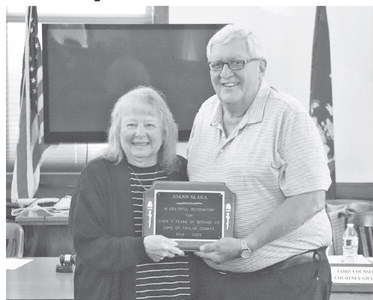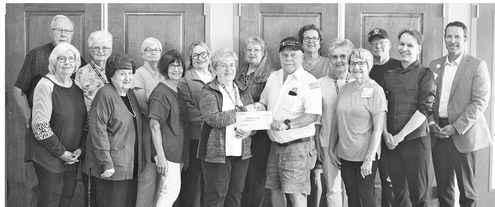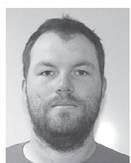County OKs continuing with opioid settlements


Members of the Taylor County Board of Supervisors made quick work of the action portions of their agenda at their meeting Tuesday morning.
The top action items dealt with ongoing opioid settlement and class action lawsuits. Along with other counties and municipalities, Taylor County is part of class action lawsuits against pharmaceutical companies and named defendants in a number of nationwide law suits. The basic argument is that the companies and individuals who benefited from overprescription of opioids should be held accountable for fueling opioid epidemic and the additional burden this puts on agencies and counties.
The county previously received some opioid settlement funds, with a committee assigned to make recommendations on how these funds should be spent. On Tuesday, board members approved a pair of resolutions to allow the county to participate in new national settlements and for the designate county official to enter into agreements with opioid defendants.
Board member Scott Mildbrand noted the resolutions were very dense and full of legal language making them challenging to read through. He also questioned the lack of the county attorney’s signature on one of them and wanted assurance that it had been reviewed and was in the best interest of the county.
County attorney Courtney Graff noted that unlike with typical resolutions that come to the board, she did not write these but instead followed the template language recommended by the lead attorneys in the class action suit so that all the resolutions were uniform. She assured the board she had reviewed the resolution and had no concerns with it.
Graff noted that there were more than a dozen major cases involved with the opioid settlements and that as they continue to move through the system more defendants are added to the settlements as the cases against them move to settle because they are substantially similar to previous cases.
Board members unanimously approved the resolutions on voice votes.
Secure entrance policy
Implementation of new security policies may make holding after-hours meetings at the courthouse a thing of the past.
At Tuesday’s meeting board members were asked to review a proposed policy dealing with secure entrances for the courthouse. Chuck Zenner, who serves on the county’s courthouse security committee said the policy remained confidential and said copies of it would be collected from all board members at the end of the meeting. The stated reason for not releasing the policy is to prevent people will ill intent from studying it for any weak points. “We don’t want the documents to be so readily available,” Graff said.
Last year, at the prompting of the judge and local court officials, the county approved increasing security at the courthouse including going to one secured entrance with a metal detector and bag searches. While the staffing was approved for the position, and some equipment is in the lobby of the courthouse, the county is awaiting delivery of additional materials before the checkpoint entrance can go into operation.
A part of that process was setting up a policy for who would be searched and how the building security would take place.
Board member Mike Bub noted that employees arriving early would need to go through the sheriff’s department dispatch center to enter the building. He questioned what impact there would be for meetings scheduled in the evening in the courthouse. For example, he said they are planning a public broadband information session this fall and had anticipated having it at the courthouse in the evening. He questioned if it would be possible to have an on duty deputy do the security for the meeting or some other special procedure to be in place.
“That is a great question,” Zenner said, suggesting everyone attending could come through dispatch.
Board member Darrell Thompson suggested a better option would be to use another county facility for after hours meetings. He said it would make more sense to utilize those versus trying to get extra law enforcement for an after hours meeting.
Graff encouraged board members with questions or ideas to reach out to the courthouse security committee members with them.
“This is a working document. It is not set in stone,” Zenner said, noting changes can be made to it.
In other business board members
• Approved increasing the hours for the staff in the veterans service office from 35 hours per week to 40 hours per week. The request had come from the veterans service committee in response to increasing workloads in the office. The office works to assist veterans to get the benefits they are eligible for through the state and federal government. Veterans service officer Sheila Sutton noted the office helped bring $211,000 worth of benefits to the veterans and their families in the county in 2024 and so far this year have brought in $195,000 to local veterans through their work. She compared this to a total budget for her department of about $188,000.
• Approved a resolution recognizing September as suicide prevention month in Taylor County. The resolution encourages all residents to learn the warning signs of suicide and how to respond, talk openly about mental health to reduce stigma, support those who may be struggling, and share resources such as the 988 suicide and crisis line.
• Approved changes to the tax deed/in rem ordinance that governs how property is taken for non-payment of taxes. The four-pages of county ordinance changes reflect changes at the state level and courts about how the process needs to take place.
• Approved changes to the ordinance relating to the former Taylor County Commission on Aging to reflect that agency transitioning to Taylor County Aging and Disability Center as well as formally establishing the governing board representation.





